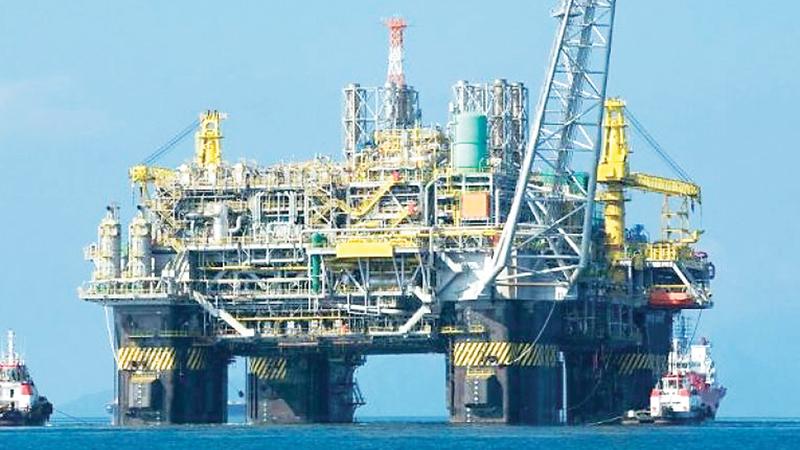
The National Policy on Natural Gas (NPNG) is “a forward looking and a prudent policy which will help develop the natural gas industry in the country,” technical advisor to the Ministry of Development Strategies and International Trade, Mangala Yapa said at the oral consultations for the NPNG conducted by the Public Utilities Commission of Sri Lanka (PUCSL) in Colombo last week.
He said making the policy broad and deep is good but what is more important is implementation and consistency.
“I regret that it has not been the case in my life,” Yapa said adding that he was confident the officials drafting the policy will implement it. The industry is broad and more work has to be done in the up, middle and down-stream operations,” he said, adding that the policy encompasses all aspects such as the role of the private and the public sectors.
However, he said that the public sector gets priority over the private sector in implementing the policy. The private and the public sectors should work together. The policy clearly articulates a wide range of objectives. It recognises bunkering to be carried out by the public sector. But the question is whether the public sector is competent enough to handle private sector bunkering.
“Why not get the private sector involved in the business? We must not forget the ancillary services industry in main stream activities. There are many opportunities for ancillary services to benefit from main stream operations. The competency and capacities have to be enhanced. Identifying gaps in potential industries, and having consistent and clear policies are vital to make the policy credible.
“The natural gas industry is a complex industry. If there are too many players to decide supply and demand needs, there will be problems. There should be one single credible body to regulate the industry. Safety and safety standards are important. The policy must adopt contemporary best and next practices as the world has evolved a lot in the natural gas business,” he said.
Former Sri Lanka Ports Authority Chairman Saliya Wickramasuriya said the policy must encompass all answers to address investor issues if not it will remain a mere document with no effect on the industry.
“Since 2012, there have been discussions on the natural gas industry following the discovery of gas in the Mannar basin in 2013. The policy was prepared not to meet the internal needs but to enable oil and gas suppliers to make use of it. However, the policy has been confined to a paper since then. The policy speaks of penetration targets but not about economic targets with some form of reference to prices and as to how much gas Sri Lanka needs, and where and how could we export,” Wickramasuriya said, adding that there will be no use in the policy, if it has to undergo change with the change of governments.
PUCSL Director General Dhamitha Kumarasinghe said the NPNG will be finalised by the end of next month. “We expect a good outcome from the oral consultations which will help create a comprehensive policy on natural gas”.
Public consultations on the NPNG commenced on February 25. While written representations were open for one month, and oral submission by the public were entertained at a forum at the BMICH last week.
The rationale of the NPNG is to facilitate setting up an economically viable, environmentally sustainable and socially responsible natural gas industry in Sri Lanka. To achieve this the policy upholds the role of the government, the private sector, civil society and the public.
Industry experts said the government as the trustee of natural resources and the private sector as the engine of growth must collaborate to make best use of natural resources.
There are many regional and global examples of economically viable ventures in natural gas, run by the private sector. However, Corporates with technology and large investments dominate the natural gas industry, inhibiting competition.
The public consultation document notes that government has a vital role to play as the regulator, to ensure a level playing field for healthy competition among private players. Besides, it is also responsible for many other aspects and protecting the rights of consumers.
The NPNG aims at increasing the share of natural gas to at least one third of the mix of total fossil fuel consumption by 2030, reduce the dependence on imports of costly fossil fuels to around at least half of the present level, by 2030, progressive penetration of natural gas in all sectors, maintaining minimum of 30% of the energy mix, increase earning of foreign exchange through exports, exploitation and bunkering of indigenous gas resources and minimise emission of green house gases to meet the Paris Agreement targets.
The draft national policy on natural gas was developed by the Ministry of Highways and Road Development with the Petroleum Resources Development section, to set up and develop the natural gas industry in Sri Lanka. The first natural gas discovery in Sri Lanka was made in the Mannar Basin, off the North Western coast, in 2011. So far, exploratory drilling has made two discoveries from the same block with estimated reservoir capacities in excess of 1 Trillion Cubic Feet (TCF) of natural gas and 10 million BBL (barrels) of condensate.
The national policy on natural gas will facilitate the exploration and production of natural gas, import and export of Liquefied Natural Gas and use of natural gas as an energy source and raw material and establish the legal, regulatory and institutional framework for the natural gas industry in Sri Lanka.
